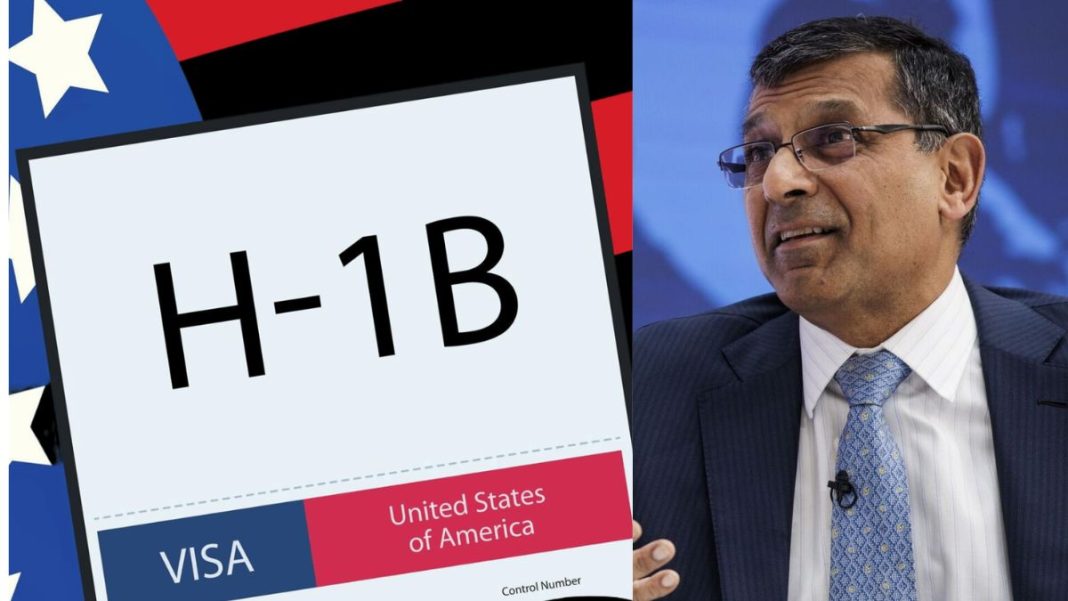Former RBI Governor Raghuram Rajan has identified the proposed US HIRE Act as a more significant threat to India’s economy than the recent H-1B visa fee increases, warning it could impose tariffs on outsourced services.
Key Takeaways
- The HIRE Act proposes a 25% tax on outsourced services, directly targeting India’s IT exports
- Rajan considers this more damaging than H-1B visa fee hikes
- Digital delivery is already reducing H-1B demand naturally
In an exclusive interview with DeKoder, Rajan explained that while goods tariffs receive attention, the real concern lies in potential service tariffs. “One of our biggest concerns is not so much the goods tariffs but whether they try and find ways of imposing tariffs on services. This is a threat,” he stated.
Understanding the HIRE Act Legislation
The Halting International Relocation of Employment (HIRE) Act aims to boost US job creation by making outsourcing more expensive. It proposes a 25% outsourcing tax on payments to foreign workers for services used in the United States while eliminating tax deductions for these payments.
The generated revenue would flow into a Domestic Workforce Fund designed to train American workers for future employment opportunities.
H-1B Visa Changes: Less Impact Than Expected
Regarding the H-1B visa program, Rajan noted that demand is naturally declining as digital delivery becomes more prevalent. “Indian companies can still have personnel in the US, they may recruit more from Indian students who study there. But much more can now be done virtually,” he observed.
Current H-1B holders and STEM students in the US likely won’t face immediate impacts. Major technology firms like may increase hiring through global capability centers in India, ultimately reducing H-1B immigration.
“There will be adjustments, and the net effect will be less H-1B immigration, but it doesn’t look as bad as it first seemed. The HIRE Act is much more important for us,” Rajan concluded.




